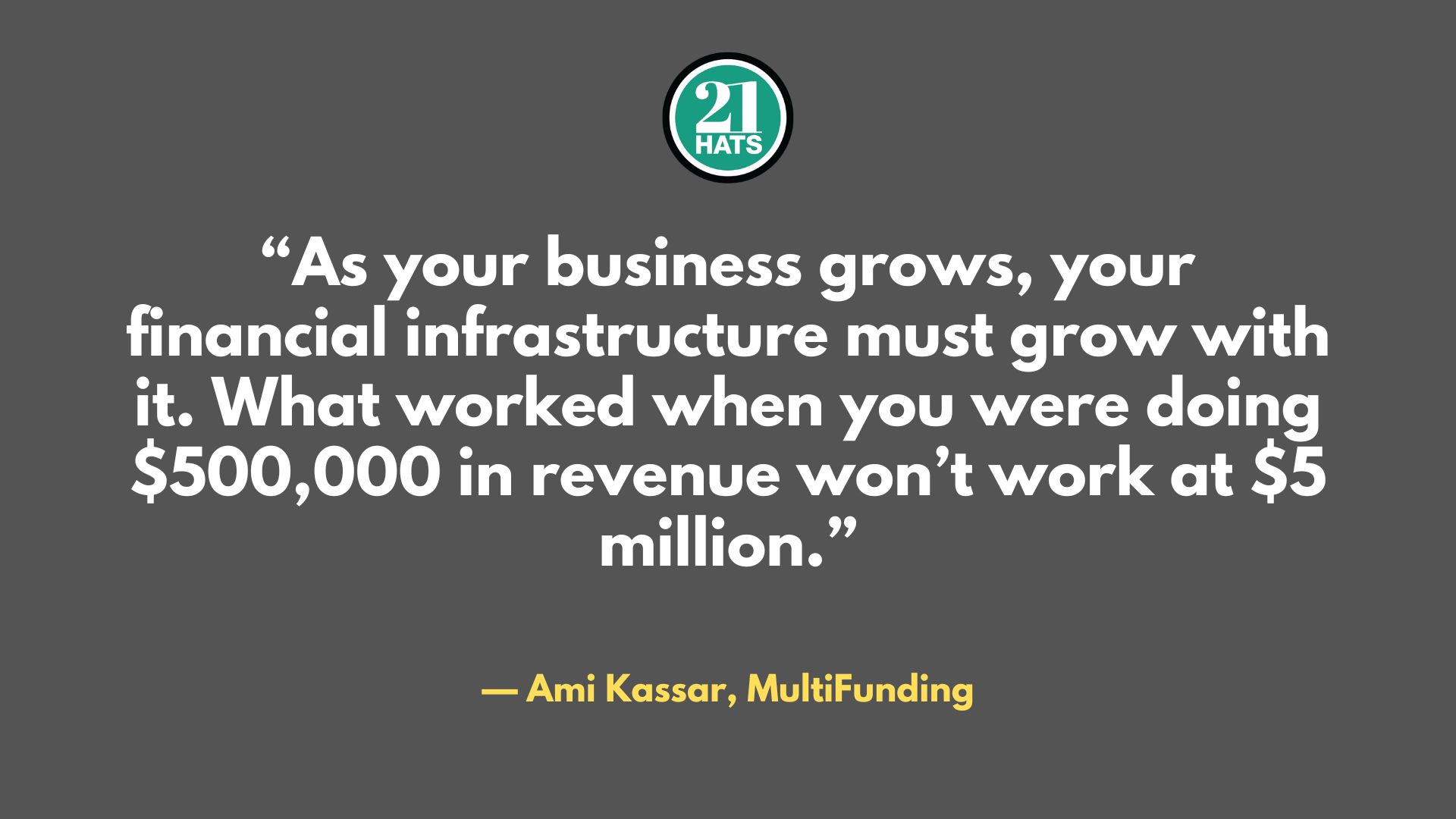When Your Growth Outpaces Your Bookkeeping

Three very different companies, one common problem: Without strong accounting, financing becomes more complicated—or impossible.
By Ami Kassar
In the rush to build a business, bookkeeping and accounting can feel like the last thing an entrepreneur wants to focus on. After all, the goal is growth—winning new customers, generating revenue and profit. But here’s a reality check: If your accounting standards don’t keep up with your growth, they will eventually catch up with you—often at the worst possible time, like when you’re trying to get financing.
Over the past few weeks, I’ve seen three very different companies—all at various stages of growth—struggle with the same fundamental problem: their bookkeeping and accounting weren’t up to standard.
The first was a small business generating about $700,000 in revenue. This business was applying for a modest SBA loan, but when the file hit underwriting, the lender noticed that the balance sheet and income statement didn’t reconcile. The problem wasn’t the underlying business—it was that the business was trying to handle its own accounting. When the numbers don’t add up, lenders can’t move forward. The deal was declined, and the owners were left frustrated.
The second was a company with about $5 million in revenue and three divisions. One division was profitable, one was losing money, and one was breaking even. The challenge? All three were being lumped together in one profit-and-loss statement and one tax return. On paper, it was impossible to break down the story for a lender or investor. The weaker parts of the business were hiding the healthy part, and without better financial reporting, the company had no way to explain the actual state of its finances.
The third example was a manufacturing company whose annual revenue has grown from $50 million to $120 million in just a few years, primarily through acquisitions. The growth is impressive but has come with challenges, including the need to borrow from seven different banks, which has generated plenty of complexity and frustration. The root issue? The accounting infrastructure hasn’t kept up. The company still has only a controller, and it hasn’t invested in audited financials. At this scale, it needs a chief financial officer. It needs systems that reflect the complexity of the business. Until it makes those investments, the banking challenges will continue to multiply.
The lesson here is simple in theory but not easy in practice: As your business grows, your financial infrastructure must grow with it. What worked when you were doing $500,000 in revenue won’t work at $5 million. And what worked at $5 million won’t hold up at $50 million. Clean books and strong accounting are not luxuries—they are prerequisites for growth. Ignore them at your peril, because sooner or later, the numbers will tell the truth.
Ami Kassar is CEO of MultiFunding.